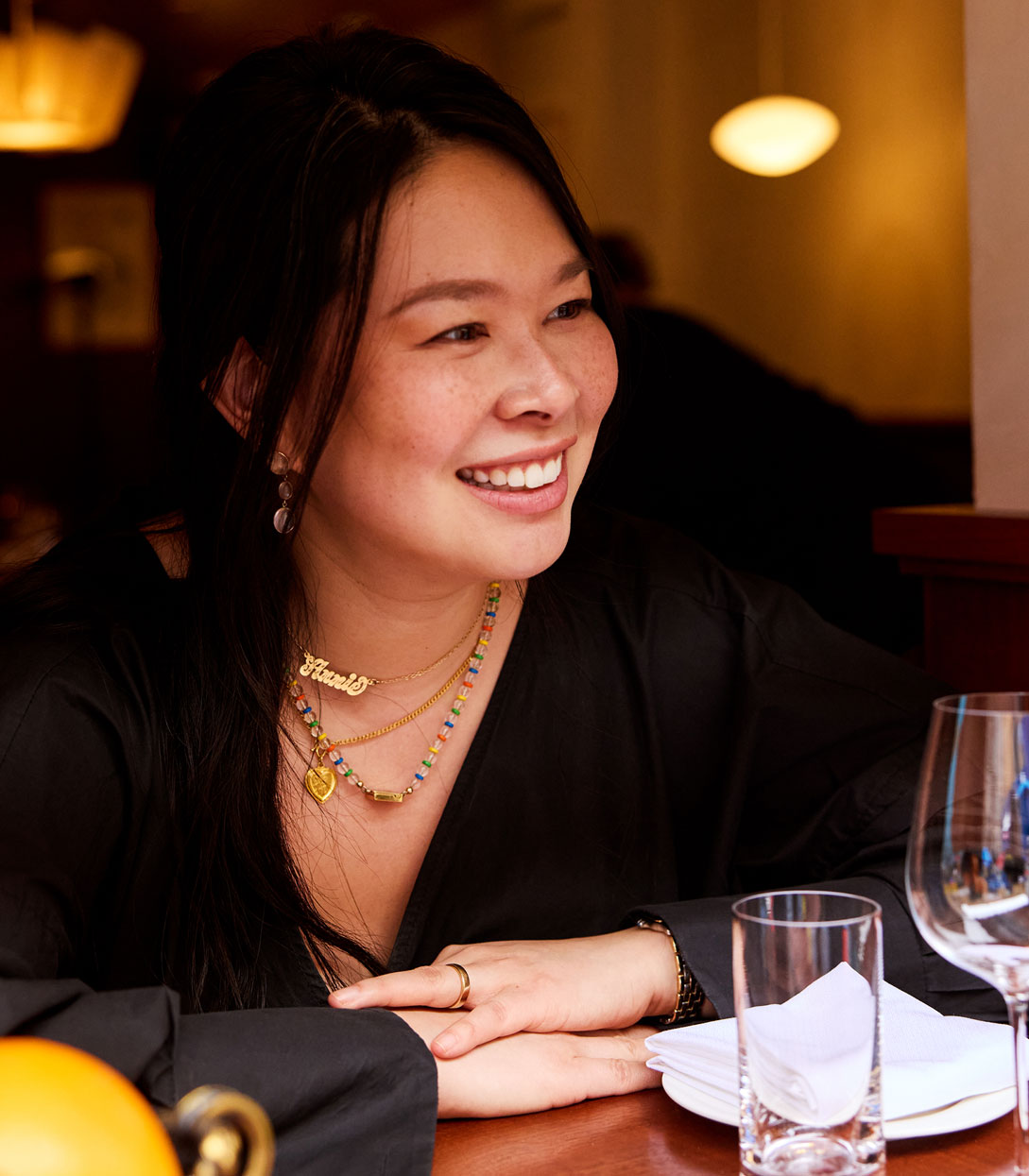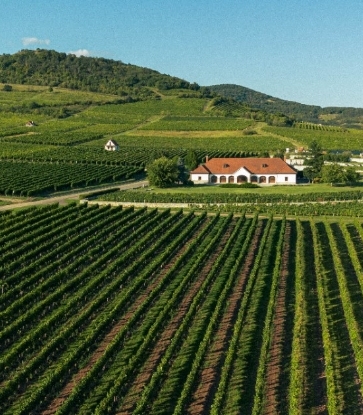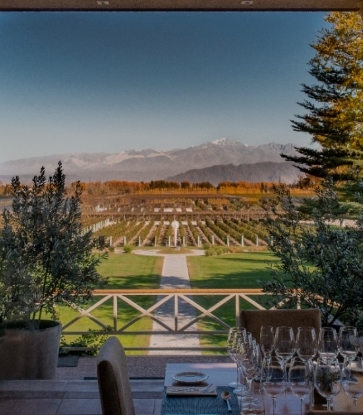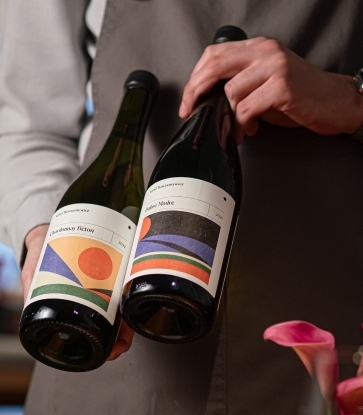When Fred Dame began his career in wine, the professional sommelier job didn’t exist. There were no celebrity cork-pullers; sommeliers didn’t write books or star in documentaries and television shows; the era of social media and thousands of followers was far into the future.
“When I told my mother I wasn’t going to be a lawyer, she looked at me like I had a disease,” he says. After briefly attending law school, Dame quickly realized it wasn’t the right fit. “I thought, ‘I don’t want to be here.’ I couldn’t imagine sitting behind a desk for the rest of my life.” He’d spent a summer at age 18 traveling throughout Europe with a rail pass and was already a lover of food and wine. “One thing that fascinated me about Europe was that everywhere I went the wines were really built to match the cuisines,” he remembers. “I love food and I was fascinated to try all these new wines I’d never heard of before. The food side of things was already established, but the wine side was really just beginning. I thought, ‘I can really make a name for myself on this side of things. And if I don’t, I can have a great time trying.’”
A native Californian, Dame was working in the early 1980s as cellar master at The Sardine Factory in Monterrey, building a wine list that would later become legendary. He’d heard of the Master of Wine program in Europe, but at that time the organization wasn’t accepting Americans for the exam. “One day I came across an article about the Master Sommelier diploma in England,” he says. “I’m a very competitive person. My least favorite word in the English language is ‘no.’ I started making phone calls and bugging people and they finally agreed to let me come take the exam. I knew it was the opportunity of a lifetime.” It was 1984. Dame had no real mentors and there was no such thing as the internet. He read books and tasted as many wines as he could while working the floor at The Sardine Factory to prepare for the exam, which was split into three sections: wine theory, restaurant service and blind tasting.
Dame’s hard work—and natural talent—paid off. He passed the exam on his first attempt. He was a young 31 years old. “After passing, I stood back. I’d won some competitions and gotten a pile of medals. But what good is that? People were asking how to get involved in this master sommelier thing and it got me thinking.” In 1987, Dame brought the master sommelier program to the United States and helped establish the American chapter of the Court of Master Sommeliers. “A bunch of master sommeliers and masters of wine came over from England to run the exams. We could barely afford it, but after a few years we were self-sufficient. I went around and recruited every top somm I could get my hands on. We had the crème de la crème in America. I realized after a couple of years that this was, indeed, a noble pursuit.”
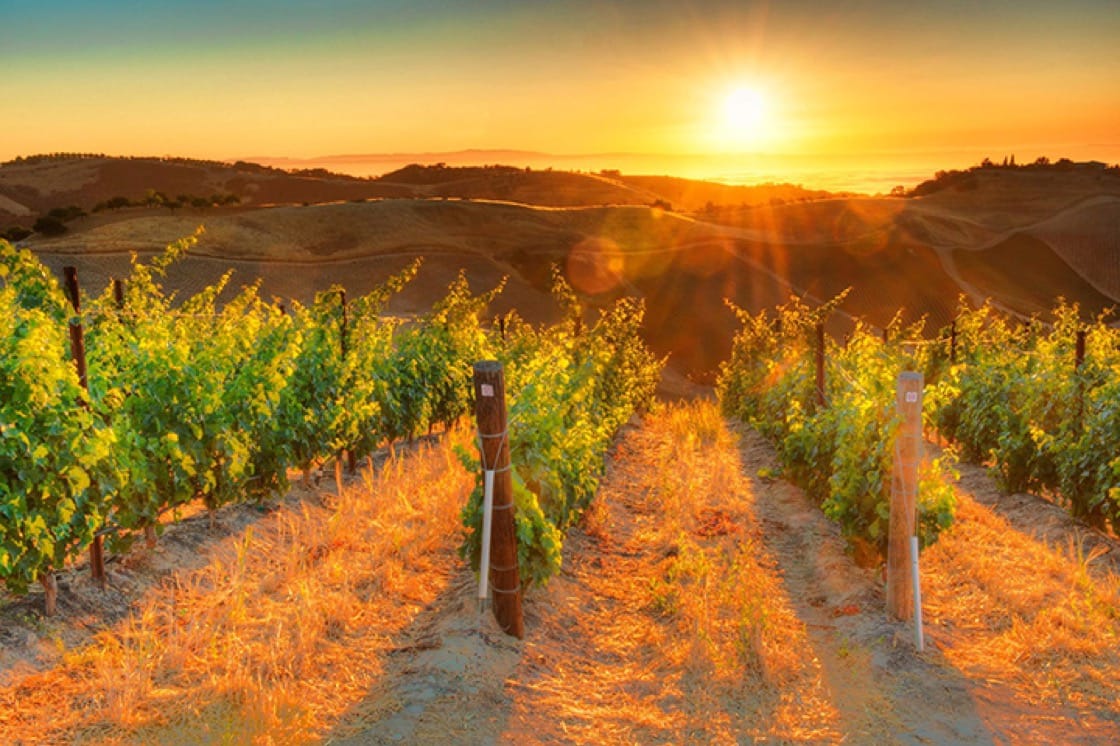
In the decades since, Dame has seen the wine landscape—and the sommelier profession—in the U.S. completely transformed. “When I took the masters exam in 1984, Arthur was still king of England,” he quips. “There were maybe five of us sommeliers in California.” He also marvels at the amount of wine now available on the market in America. “There’s a huge proliferation of wine labels, varieties, etc. There’s a lot of wine out there to be sold, at all levels.” In the past decade alone, the sommelier profession has exploded. Sommeliers have reached celebrity status, following on the heels of the celebrity chef. From scrounging for money and talent to hold master exams in the U.S., the Court of Master Sommeliers in America now sees huge yearly increases in the number of people hoping to obtain one of its certifications—more than 7,000 people took the organization’s Introductory Sommelier course in 2017. “If you’d told me so many people would be going through the program back when we got started in 1987, I never would have believed you,” Dame says incredulously. “When you look at the growth, it’s spectacular.”
As a former sommelier, I often wonder how relevant the profession will be in the future, and what the restaurant sommelier will look like. Since the Global Financial Crisis of 2008, restaurant culture has changed. Restaurants with huge wine lists and traditional white tablecloths and gueridon service are dwindling. Nowadays sommeliers are often seen as the most expendable position in a restaurant—when the going gets tough, they’re the first to be ousted. Many sommeliers today are really “sommagers,” restaurant managers with some wine experience. Will programs like the master sommelier diploma still be relevant in this changing wine landscape, where vast amounts of information is available to consumers at the click of a mouse or the swipe of an iPhone, and most restaurants suffice with one or two employees who know a little about wine?
Dame believes sommeliers, and certifications geared toward them, are more important than ever. “It was hard to be relevant when there were only five of us,” he says. “One hundred and seventy-five master sommeliers in the U.S. sounds like a big number until you look at how many cases of wine are sold in this country. The next decade is going to be a fast inning. The positions and roles, like in every other industry, are changing. You want to keep the traditional and maintain that level of excellence, but the traditional role has changed. As the industry continues to transform itself, the role of the salesperson in distribution, the somm, the writer, the critic, is constantly changing.”
Dame is an optimist when it comes to the boom in the wine business and the sommelier profession. He believes the proliferation of labels, voices, information, etc. is beneficial for those working in the wine business as well as for wine drinkers. “The more people you have taking an interest in learning about what they’re doing and really calling it a profession, the better. We’re improving the standards of service, knowledge and professionalism. We’re making it a more competitive business and that is a real bonus. The consumer really wins in all of this. Consumers are drinking more and better wine. I think it’s a great time to be a consumer or a professional.”
Competition will raise standards but will also prove to be challenging for individuals hoping to break into the business. “Figure out who you are and who you want to be,” Dame emphasizes. “All the opportunity is there. It’s finding that segment of the industry that fascinates you and that drives you to succeed and excel—highlight excel. That competitive factor will be huge in the coming years. Technology, social media, there is a massive amount of information out there. It’s not just a few voices telling you to buy something anymore. There are tons of voices. People are getting wiser, and there are so many more selections out there than there used to be.” Talent and passion, Dame hopes, will always be a welcome addition to the profession. “What has continued to astound me in the last two decades is the quality of the people coming to the wine profession for the passion of it. They could be doctors or attorneys, but they fell in love with wine. As long as you’re continuing to attract these bright people, there’s plenty of room for growth.”

In 2018, Dame decided to retire. “Three months went by and I started to get a little bored,” he jokes. He’d known the Daou brothers, Georges and Daniel, for several years. Originally from Lebanon, the family immigrated to the South of France during the Lebanese Civil War. The brothers eventually moved to San Diego to study engineering. After successful careers in networking technology, the two founded DAOU Vineyards in the Adelaida district of Paso Robles in 2007 with the goal of crafting “First Growth” California wines from Bordeaux varieties. Dame has taken on the role of Global Ambassador for the brand.
“I really like what they’re doing,” he says. “The Daou property, now called Daou Mountain, produced one of the first great Pinot Noirs outside of the traditional regions. I looked at that soil and was like, this is Coonawarra, this is St.-Émilion. Calcareous, porous limestone—it’s perfect.” Dame admits that part of the appeal of working with the Daou brothers is the inherent potential of the terroir there and the possibility of having a hand in a project he hopes will help elevate the region to world-class status.
“When I first started out back in the 1970s, Paso Robles was all Zinfandel and cattle. For as old as the appellation is, Paso is in its nascence of becoming one of California’s really great regions,” he says. “Regions like this have a great opportunity to grow and produce world class wines. The soil and everything else is there—you just need the will to make it happen. I was never actively involved in the boom in Napa Valley or other California regions. When I look at where Paso is today, to end my career, I’d like to be part of the recognition of another great region of production in California. I think Paso has all the opportunity for the future. The wines are becoming spectacular.”
As Dame looks forward to his involvement in a burgeoning wine region, he looks back on decades of mentorship. He’s shepherded hundreds of students through their sommelier certifications, helping to raise the new generation of wine professionals in our country. “The greatest part of my adventure has been all the people I’ve taught,” he says. “That’s the magic of what we do. It’s one thing to have skills, abilities and talents. It’s another thing to pass them on. I’ve dedicated my career to helping others make that discovery. There’s nothing better than seeing someone you’ve worked so hard with finally achieve their goal. I want that enthusiasm and passion to guide sommeliers through their careers.”
Photos courtesy of DAOU Vineyards.







